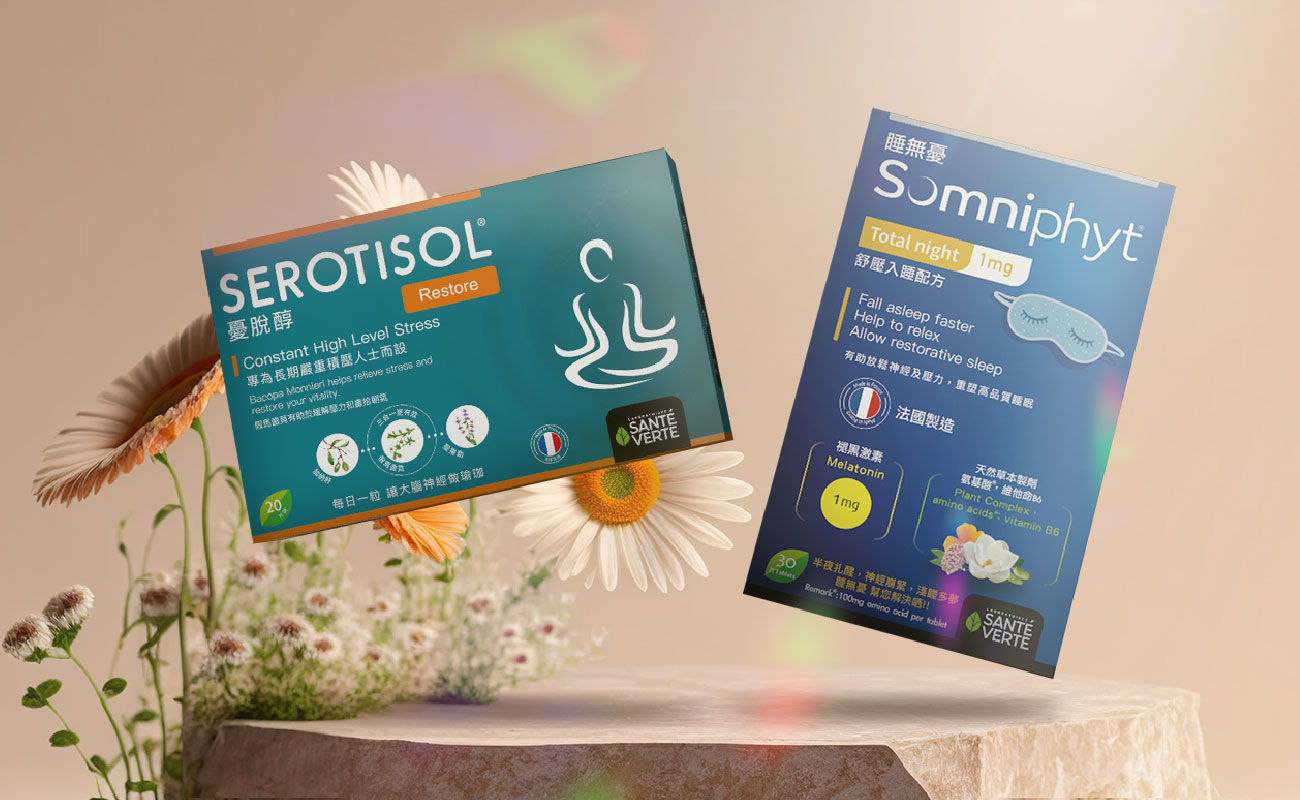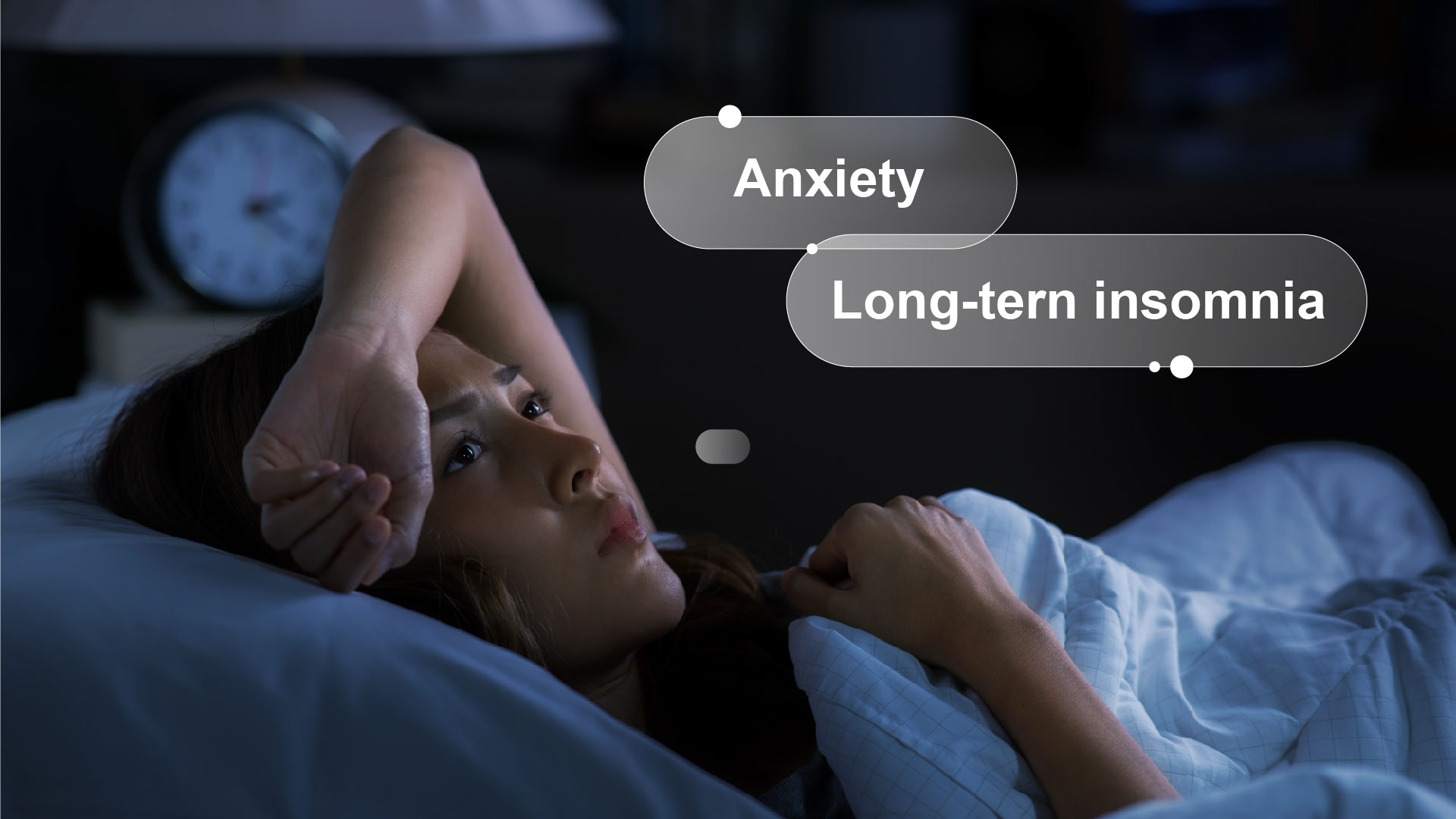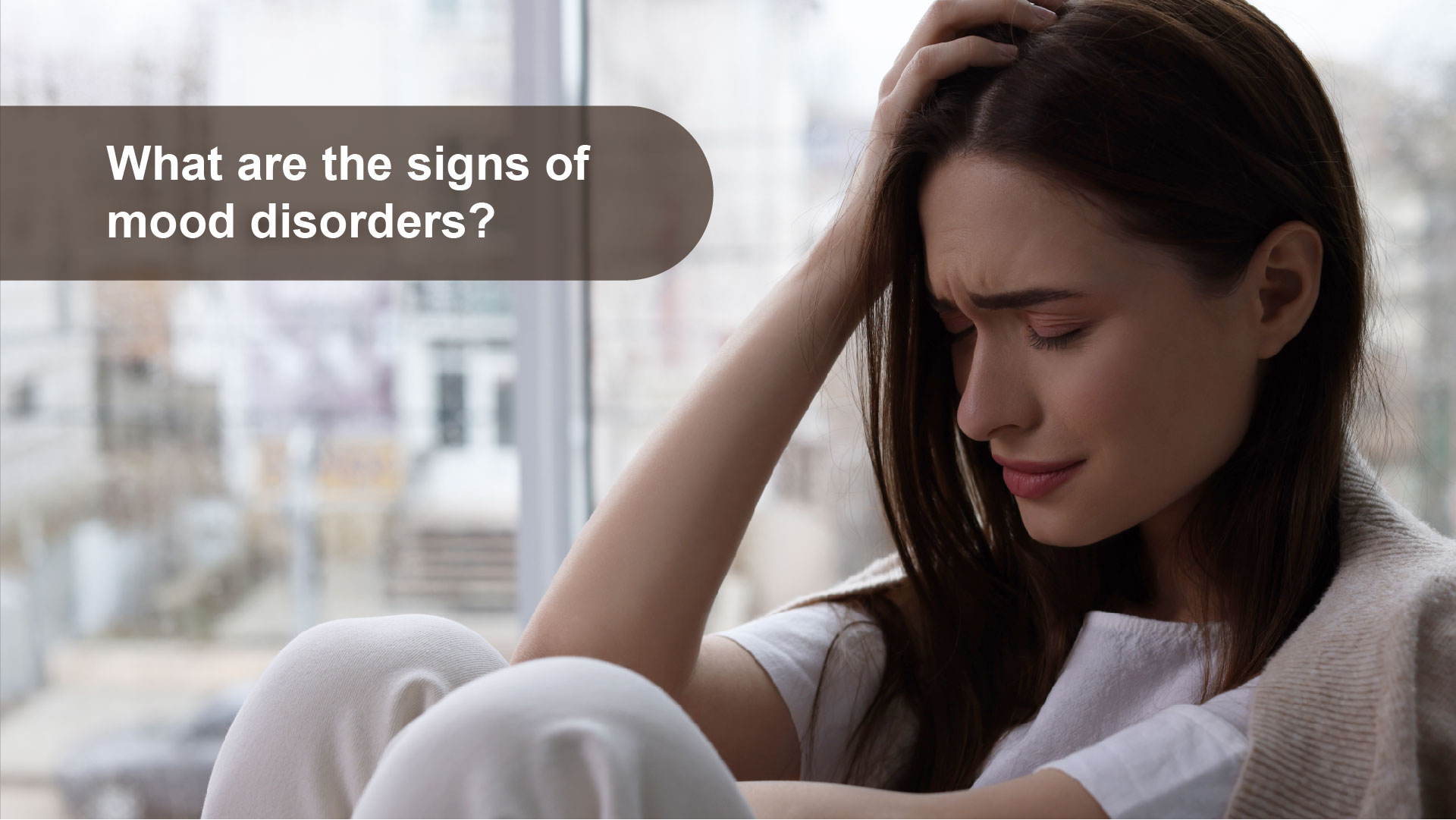Anxiety is normal, but what causes anxiety problems?
Anxiety is a feeling of worry and unease caused by fear and stress, and it is a typical psychological experience. However, suppose a person faces excessive external pressure, has low stress tolerance, is abnormally sensitive, or suffers from certain mental or psychological disorders. In that case, anxiety can develop into an anxiety disorder, severely affecting daily life. Patients with anxiety disorders often feel extremely tense, anxious, and fearful, yearning to avoid specific things. When facing anxiety and fear, they may experience the following physiological symptoms:
- Feeling uneasy or tense
- Muscular tension
- Dizziness
- Sweating
- Rapid heartbeat and hyperventilation
- Difficult concentration
- Feeling restless
Anxiety and insomnia are closely related; more than half of individuals with anxiety disorders have sleep problems. Due to negative emotions, excessive worry, tension, and anxiety, they may find it difficult to fall asleep after lying down.
The Relationship of Anxiety and Insomnia
When people feel anxious, their bodies release stress hormones, which increase alertness and interfere with falling asleep. For those troubled by sleep anxiety for a long time, seeking professional psychological counseling and treatment is a practical approach. Therapists can help patients identify and cope with anxiety triggers and teach various coping strategies, such as cognitive-behavioral therapy or relaxation training, to help them improve sleep quality and alleviate anxiety symptoms.
How Do You Deal With Sleep Anxiety?
By establishing good sleep habits, learning anxiety coping techniques, improving sleep quality, and enhancing quality of life. Sleep anxiety may manifest in various symptoms. Some common symptoms include:
- Feeling uneasy or tense before sleep
- Worrying about being unable to fall asleep
- Difficulty falling asleep
- Frequently waking up at night
- Feeling tired during the day
- Difficulty concentrating
- Irritability
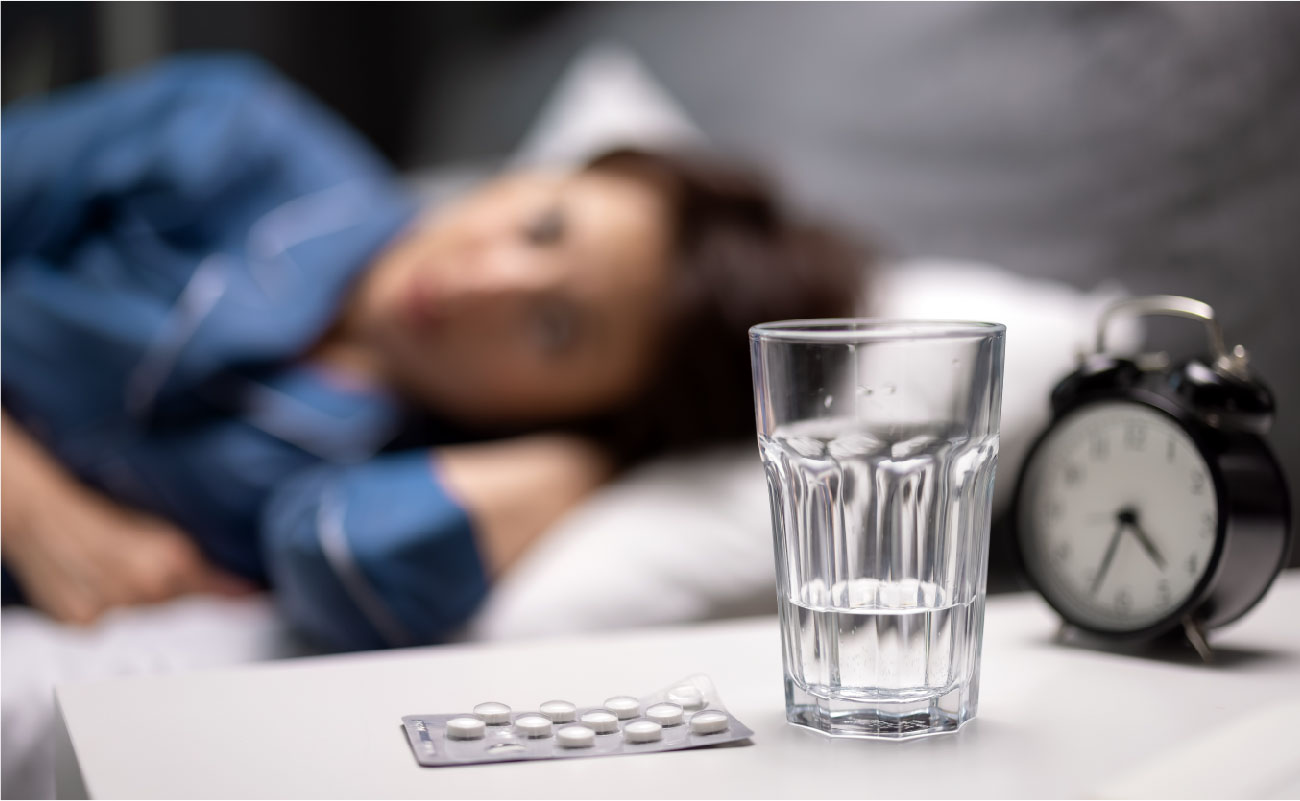
Sleeping Pills is not the only way to treat Anxiety-related Insomnia.
Many people believe that sleeping problems can be solved by taking medication without realizing the association with emotional disorders.
In clinical experience, without proper treatment of anxiety or depression, taking medication becomes less effective, and patients may increase their dosage but still not achieve the desired results. The worsening of sleep conditions exacerbates the original anxiety, depression, or trauma-related symptoms such as intrusive thoughts, intense anxiety about escaping, increased panic attacks, and more frequent depressive episodes. Studies have found that continuous sleep disorders or frequent delays in sleep onset also increase the risk of self-harm and impulse control the next day.
Chronic insomnia increases the difficulty of treating emotional disorders and may cause multiple relapses, forming a vicious cycle. Even without appropriate treatment for chronic insomnia, the probability of developing emotional disorders is more than three times higher than that of regular sleepers. According to the latest research, long-term sleep less than 6 hours increases the chance of dementia.
Emotional Hormones and Cortisol Directly Affect Sleep Quality
Many factors affect sleep. Besides poor lifestyle habits such as smoking/eating before bed, caffeine/alcohol intake, lack of exercise, and using electronic devices before bed, the most important factors are ‘stress’ and ‘changes in hormones.’
Epinephrine is a hormone in the brain. If its concentration is too high, it will accelerate brain function, keep the body awake and alert, and make it difficult to fall asleep. However, sleep is a basic human need. Anxiety caused by insomnia will become more severe. The continuous imbalance of emotional hormones, insomnia, and anxiety create a vicious cycle.
Research has found that if sleep is insufficient for one day, the cortisol level in the body will increase by 37% the next day*; if there is no sleep all night, the cortisol level will increase by 45%*. The body is in a state of stress hormone surge for a long time, which leads to continuous insomnia.
In addition to the imbalance of emotional hormones, excessive thyroid hormones may accelerate metabolism, increase heart rate, and make it difficult to fall asleep.
5 Methods to Improve Anxiety-Related Insomnia
To break the vicious cycle of anxiety-related insomnia, it is recommended to improve daily habits. Here are 5 methods to help sleep, which can be practiced daily to relieve anxiety and effectively enhance sleep quality.
Method 1: Establishing Good Sleep Habits
- Avoid using electronic devices before bed: Entering a relaxed state, reducing blue light stimulation, and effectively reducing sleep disorders.
- Reduce caffeine intake: Caffeine is a stimulant. Excessive intake or intake too late will affect sleep.
- Avoid drinking alcoholic beverages before bed: Although alcohol can make you fall asleep quickly, it disrupts sleep structure, thus affecting sleep quality.
- Avoid intense exercise before bed: Too intense exercise can overstimulate the autonomic nervous system, causing the body to be tired but the mind to be very awake, making it difficult to fall asleep.
- Maintain regular schedules: Go to bed at a fixed time and try to fall asleep before 11 o’clock to help the body memorize and establish a physiological clock, which will be helpful for sleep.
Method 2: Increase Serotonin Secretion
- Serotonin is the ‘happy hormone,’ which helps stabilize emotions and reduce anxiety and irritability.
- Serotonin is secreted in large amounts in the morning and gradually decreases in the afternoon.
- Serotonin cannot be stored and needs to be produced every day.
- Serotonin will be converted into melatonin at night. The amount of melatonin secretion depends on the serotonin secreted during the day. If serotonin secretion is insufficient in the morning, the melatonin generated at night will decrease, and sleep quality will decrease.
- Method of stimulating serotonin secretion: ‘Sunbathing, exercise, nutritional supplementation’
- Sunbathing: Sunbathing for 30 minutes: Sunlight (500010000 Lux) can promote secretion. Exposure to sunlight can reset the physiological clock after the eyes are exposed to it (suprachiasmatic nucleus).
- Engage in rhythmic exercise: Breathing, chewing, racewalking, jogging, cycling, swimming, or meditation with abdominal breathing for about 5 to 30 minutes.
- Nutritional supplementation: Tryptophan, 5-HTP, vitamin B6
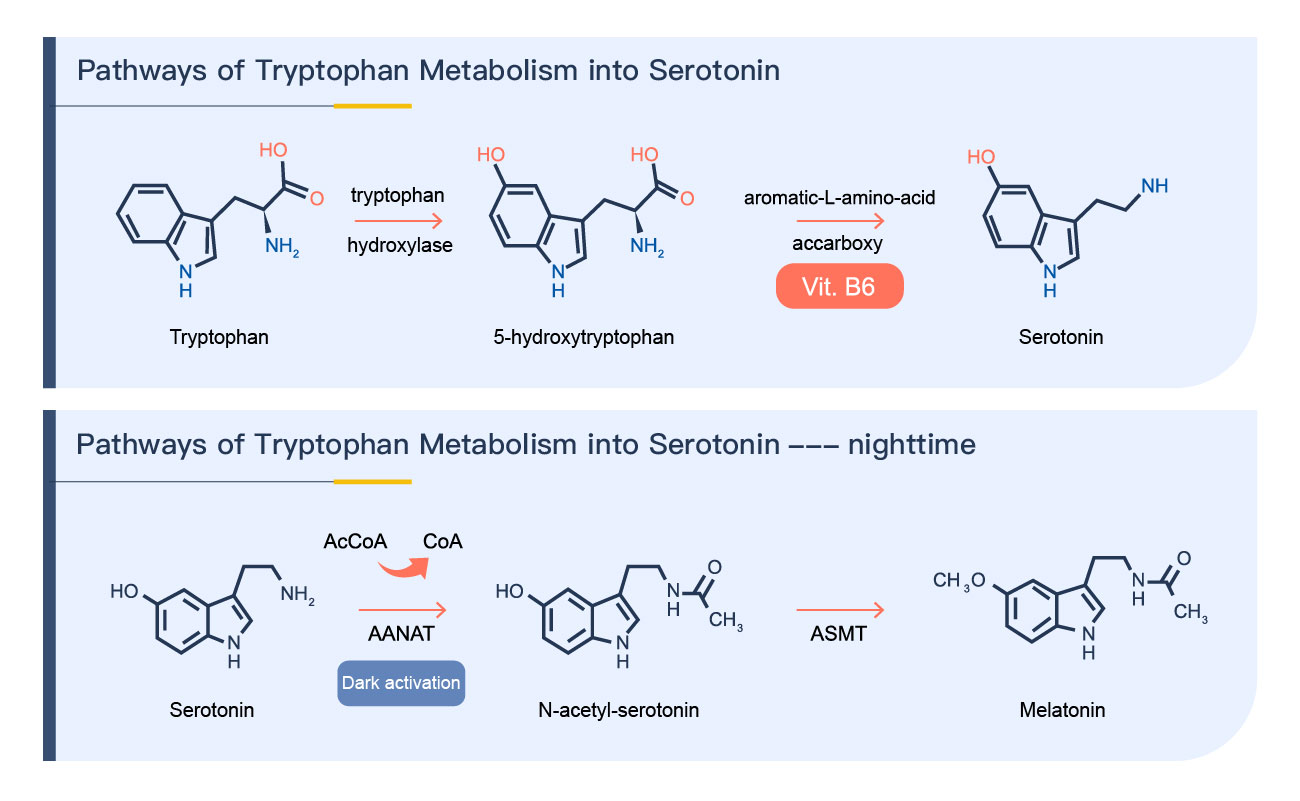
Method 3: Create a Comfortable Sleep Environment
To keep the bedroom comfortable, ensure the curtains can completely block sunlight and prepare soft cotton quilts or blankets. You can also use your favorite natural essential oil scents to create a comfortable and relaxing space, which helps alleviate sleep anxiety. Additionally, remember to regularly change bedding, keep the room clean and comfortable, and make it a “suitable for sleep” place.
Method 4: Relaxing Activities Before Bed
Engaging in relaxing activities such as reading, stretching, yoga, meditation, and journaling can help the body enter a state of rest. Everyone has different relaxation methods that suit them. Find activities that make you feel calm, which can effectively reduce difficulty falling asleep.
Method 5: Avoid Lying in Bed Awake
If you lie in bed awake, tossing and turning, and can’t fall asleep for more than 20 minutes, it is recommended that you get up and move around, stretch, or meditate for 5 to 15 minutes until you feel sleepy, then lie back down. Lying awake in bed will make the anxiety about not being able to sleep more apparent, which is not helpful for sleep.
“Serotisol® and Somniphyt®” is a unique combination for treating anxiety-related insomnia.
From supplementing happy hormones in the morning to improving sleep quality at night, the unique combination of SEROTISOL®and Somniphyt® constantly helps the brain and emotions relax and stabilize.
The Somniphyt® comprises four natural herbal ingredients, amino acids, and melatonin. It helps solve problems such as anxiety, insomnia, sleeping with many dreams, tossing and turning, and restlessness.
Serotisol® Restore is an herbal supplement specially designed for long-term, severely stressed patients and patients with depressive moods. It contains a special combination of natural herbal ingredients to calm you.
